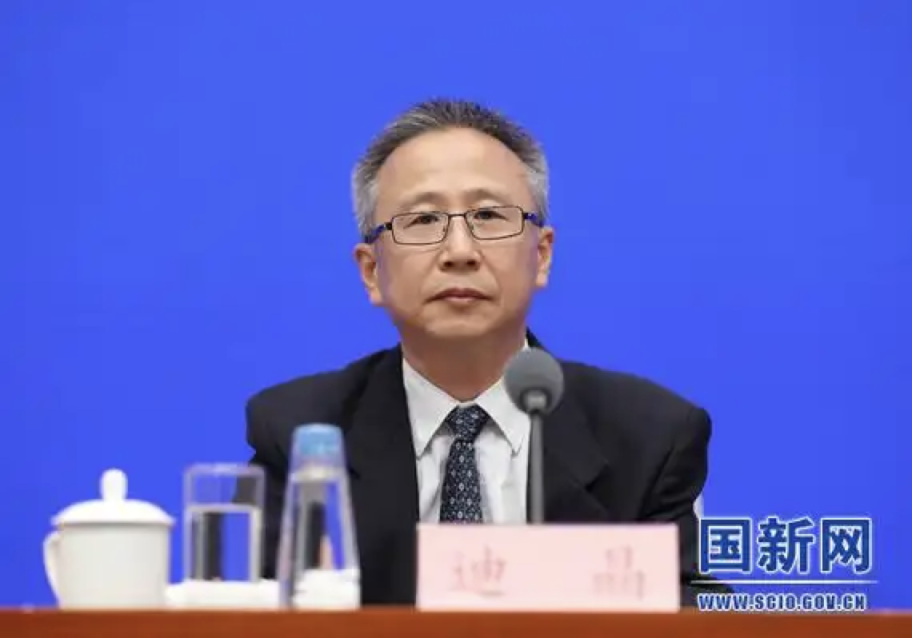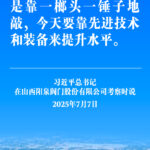The “Leadership Team” section on the All-China Federation of Supply and Marketing Cooperatives website shows that Di Jing has been appointed as a candidate for the position of Deputy Director of the Supervisory Board of the All-China Federation of Supply and Marketing Cooperatives.
Public records indicate that Di Jing previously worked at the State Council General Office, where he served as Director of the Government Function Transformation Office and Director of the Coordination Bureau of the State Council Administrative Approval System Reform Office. He has participated multiple times in the State Council’s regular policy briefings held by the State Council Information Office.
According to the official website, the All-China Federation of Supply and Marketing Cooperatives is a national organization of supply and marketing cooperatives under the leadership of the Central Committee of the Communist Party of China and the State Council, responsible for leading the development of supply and marketing cooperative enterprises nationwide. The Federation has established a Council and a Supervisory Board, implementing a system where the Council Director assumes overall responsibility.
The Council of the All-China Federation of Supply and Marketing Cooperatives has 13 internal departments, while the Supervisory Board has 1 internal department. It oversees 15 directly affiliated institutions, 9 supervised social organizations, and the China Supply and Marketing Group. The China Supply and Marketing Group manages 11 wholly-owned and controlled subsidiaries.
Currently, the Party Committee Secretary of the All-China Federation of Supply and Marketing Cooperatives is Wang Yuyan.
All-China Federation of Supply and Marketing Cooperatives
The All-China Federation of Supply and Marketing Cooperatives is a national organization in China with a history dating back to the 1950s. It was originally established to manage the distribution of agricultural goods and supplies in rural areas. Today, it continues to play a significant role in China’s rural economy, focusing on modern agricultural services, rural e-commerce, and supply chain management.
State Council General Office
The State Council General Office is the administrative body that supports the work of the State Council, the chief administrative authority of the People’s Republic of China. It handles the day-to-day operations, coordinates policy implementation, and facilitates communication between different government departments. Historically, its structure and functions have evolved alongside China’s governance system since the establishment of the State Council in 1954.
Government Function Transformation Office
The Government Function Transformation Office is a modern administrative body typically established by governments to oversee and implement reforms in public sector operations. Its history is rooted in late 20th and early 21st-century efforts to make governance more efficient, service-oriented, and responsive to public needs. These offices work to streamline bureaucracy, improve regulatory frameworks, and enhance the quality of government services for citizens and businesses.
Coordination Bureau of the State Council Administrative Approval System Reform Office
The Coordination Bureau of the State Council Administrative Approval System Reform Office is a Chinese government body established to oversee the reform and simplification of administrative approval processes. It was created as part of a broader initiative to reduce bureaucracy, improve government efficiency, and create a more business-friendly environment. Its work has involved streamlining regulations and promoting digital government services.
State Council Information Office
The State Council Information Office (SCIO) is the primary information and publicity agency of China’s State Council, established in 1991. It serves as the main channel for the Chinese government to release official information, interpret policies, and present China’s national image to both domestic and international audiences. Its functions include organizing press conferences, publishing white papers on key issues, and facilitating media exchanges.
Central Committee of the Communist Party of China
The Central Committee of the Communist Party of China is the highest leadership body of the Party when its National Congress is not in session, playing a central role in guiding China’s political direction. It was first established following the Party’s founding in 1921 and has been instrumental in leading China’s revolutionary and modernization efforts throughout its history. The Committee continues to function as the core institution for formulating major national policies and upholding the Party’s leadership across all sectors of Chinese society.
State Council
The State Council is the chief administrative authority of the People’s Republic of China, functioning as its executive body. It was established by the country’s constitution in 1954 and is responsible for implementing the laws and decisions made by the National People’s Congress. Led by the Premier, it oversees all government ministries and manages the day-to-day affairs of the state.
China Supply and Marketing Group
The China Supply and Marketing Group is a large state-owned enterprise with roots tracing back to the 1950s, originally established as a nationwide cooperative to manage the distribution of agricultural goods and materials in rural China. It played a vital role in the planned economy era by supplying farmers with daily necessities and purchasing agricultural products. Today, it has evolved into a modern enterprise group with diversified business operations spanning agriculture, e-commerce, and financial services.





